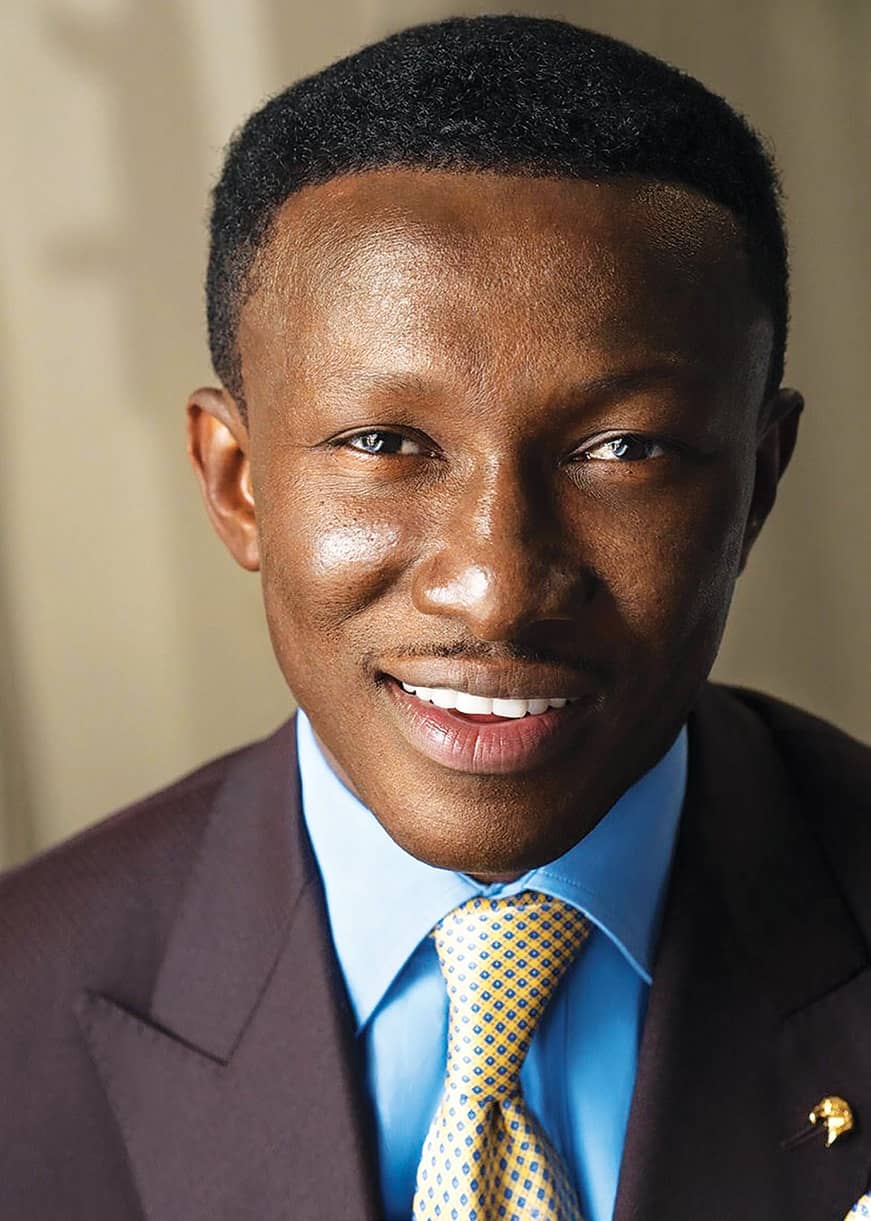
THE BIGGER the risk, the maximum the return. That’s the mantra of Nana Kwame Bediako, a real estate mogul who has had stints in the United Kingdom (UK) and Ghana over the past decade, and who has always believed in hunting for opportunity in the midst of a crisis.
Take, for instance his decision to drop out of the University of Westminster in the UK after six months, only to make a million pounds by the age of 21. Bediako, who turned an entrepreneur by age eight, when he started his own poultry business to support his cash-strapped single mother, continues to stay undeterred in the face of challenges.
Meeting Bediako is like having an encounter with a young presidential aspirant. He is fearless, ambitious and revolutionary in his foresight of building an Africa the world has never seen before.
And then there is his belief in a higher power. Bediako attributes his lucky streak in business to an inner voice which he says has steered him in the right direction ever since he was a child. His company Wonda World Estates is on a mission to not only change the skyline of Accra but also to show the diaspora community that they too can return home and add value to the development of Africa.
That mission has birthed a real estate portfolio that boasts over 560 homes in Ghana and one of the most ambitious projects in the West African region, Petronia City, an industrial park, which will become a petrochemical cluster in Africa. The project, once completed, will be a 2,000-acre city development project that will provide the first fully-integrated business hub for West Africa’s oil, gas and mining industries, according to the 40-year-old entrepreneur.
Denne historien er fra April 2020-utgaven av Forbes Africa.
Start din 7-dagers gratis prøveperiode på Magzter GOLD for å få tilgang til tusenvis av utvalgte premiumhistorier og 9000+ magasiner og aviser.
Allerede abonnent ? Logg på
Denne historien er fra April 2020-utgaven av Forbes Africa.
Start din 7-dagers gratis prøveperiode på Magzter GOLD for å få tilgang til tusenvis av utvalgte premiumhistorier og 9000+ magasiner og aviser.
Allerede abonnent? Logg på

TRACK, WATCH, BEFRIEND
IN THE PRISTINE WILDERNESS OF GABON ARE THE MAJESTIC AND GENTLE WESTERN LOWLAND GORILLAS. A FIRSTHAND REPORT FROM OUR TRAVEL WRITER ON WHAT GOES INTO HABITUATING THEM.

CHALLENGING BUT NECESSARY: THE AI BALANCING PROBLEM
Artificial intelligence (AI) continues transforming many industries, providing unprecedented opportunities for innovation and efficiency. However, these advancements bring complex challenges that necessitate a delicate balancing act.

BEYOND ACADEMIA: THE SOCIETAL IMPACT OF MULTILATERAL EDUCATIONAL COLLABORATIONS
The great poet William Butler Yeats once said, \"Education is not the filling of a pail, but the lighting of a fire.\"

The Business Of Dance: Embracing One's Individuality And Style
In the dynamic world of street dance, passion and perseverance pave the way for success. Living out this ethos is South African born B-girl turned businesswoman, Courtnaé Paul.

COMPASSION FATIGUE: THE DANGEROUS DESCENT FROM HELPING TO HURTING
It is a workplace reality that caring too much for your colleagues can hurt you.

IT HAS NEVER BEEN MORE CRITICAL TO FIND OUR NICHE
Have you found your niche? I received a lot of advice when I set up my company, but perhaps the most important consisted of just three words: Find Your Niche.

HOW TO MAKE AFRICA WIN OFF THE FIELD TOO
When all else fails, try sports. It's good for the soul.

BEAN THERE, DONE THAT
British author Roald Dahl tapped into every chocoholic's imagination when creating Willy Wonka's bizarre chocolate factory in his 1964 children's novel Charlie and the Chocolate Factory.

IT DOESN'T GET ANY BETTER THAN WORKING WITH AL PACINO ON BROADWAY'
Arnold Vosloo Actor

BLENDED FINANCE: BRIDGING THE GAP IN EMERGING MARKETS IN SUPPORT OF THE SDGS
Amid the widespread global support for the United Nations' Sustainable Development Goals (SDGs), there was an underlying concern among economists and financial advisors in the emerging and frontier markets: public sector and donor funds were stalled, if not regressing, and the funding gap to realize the SDGs was increasing.